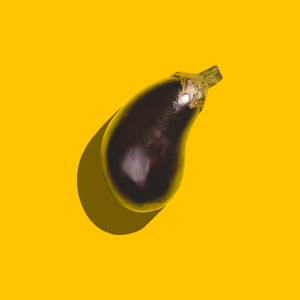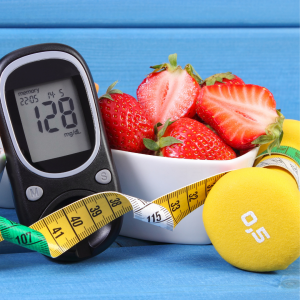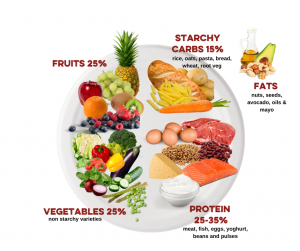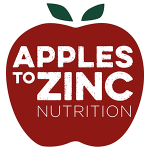5 Ways The Fruits and Vegetables Help Hormones
5 ways fruits and vegetables help your hormones!
We all know that fruits and vegetables are very good for our health, but did you know that fruits and vegetables help your hormones as well?
When you mention the word “hormones” most people think instantly of the reproductive hormones such as oestrogen, progesterone and testosterone. But there are many hormones produced by the body daily, that do a variety of roles such as: regulate blood sugar (insulin), help us digest foods (gastrin & histamine), regulate appetite (Leptin & Gherlin), manage stress (cortisol and adrenaline), help us sleep (melatonin) and regulate energy production (TSH & thyroxine)….and that is just a snap shot. There are literally masses of hormones racing round the body working hard as you read this!
Fruits and vegetables help your hormones in many ways. Overall, they provide the vitamins and minerals that help to make hormones and they provide fibre to help us eliminate them safely from the body, once they are old and used. Did you know….
 1. They Boost Your Libido
1. They Boost Your Libido
Yep…..your 5 a day might even help here too. For men, a high intake of fruits and vegetables is linked to lower levels of something called Sex Hormone Binding Globulin (SHBG). The SHBG binds to testosterone rendering it pretty useless and therefore with lower levels of SHBG, from eating fruits and vegetables, there is greater free testosterone available which may help increase sexual drive.
Avocados are an excellent source of B6 which is important for male hormone production and broccoli, containing indole-3-carbinol, helps regulate oestrogen levels which might boost both male and female libido.
All fruits and vegetables contain vitamin C and this vitamin is known to help in the manufacture of the reproductive hormones, which might also help with arousal.
Vitamin E, found in sweet potatoes, chickpeas, broccoli, asparagus, spinach and tomatoes, is also know as the “sex vitamin”, as it is good for blood flow, oxygen and regulating hormones. I’m not sure there is compelling scientific evidence, but as an anti-ageing vitamin it might help you feel sexy too!
2. They Help Supress Appetite
Fruits and vegetables add bulk to the stomach which might help us to feel fuller overall. The high-quality fibre in fruits and vegetables also help to reduce ghrelin levels which aids a reduction in appetite. Foods such as the highly refined carbohydrates (white breads, biscuits, cakes, crisps, sweets etc) can increase ghrelin levels and make you feel hungry, but proteins, fruits and vegetables have the opposite effect.
3. They Are Powerful Stress Busters!
 An Australian study in the BMJ (British Medical Journal) on more than 60,000 people showed that those who had 3-4 portions of fruits and vegetables a day were 12% less likely to suffer from stress than those who ate 0-1 portions of fruits and vegetables. When they just reviewed females, the results showed that those eating 5-7 portions daily were 23% less likely to suffer from stress, than those eating 0-1 portions a day. Isn’t that good to know!
An Australian study in the BMJ (British Medical Journal) on more than 60,000 people showed that those who had 3-4 portions of fruits and vegetables a day were 12% less likely to suffer from stress than those who ate 0-1 portions of fruits and vegetables. When they just reviewed females, the results showed that those eating 5-7 portions daily were 23% less likely to suffer from stress, than those eating 0-1 portions a day. Isn’t that good to know!
Whilst the mechanism by which the plant products reduce stress is unclear, it is thought that the stress hormone cortisol is involved.
4. Fruits & Vegetables Help You Sleep!
Studies have found that sleep duration is impacted by fruit and vegetable intake. Specifically, one study found that optimal sleep duration of 7-9 hours sleep was achieved by those with the highest plant food intake. A very interesting finding! Whilst this study cannot explain the mechanism, it is well known that certain fruit and vegetables contain naturally occurring melatonin (that’s our sleep hormone). In theory, adding more of these foods into your diet might help you sleep better. These include tart cherries, sweetcorn, asparagus, tomatoes, pomegranate, olives, grapes, broccoli and cucumber.
5. Great For Reducing Your Risk of Diabetes

Insulin is a very important hormone that helps glucose get into cells for use with energy production and cellular functioning. Insulin resistance is when the cells are no longer listening to the messages that insulin is giving and glucose isn’t effectively taken into the cells, remaining in the bloodstream. The long-term implication of this is diabetes and damage to arteries…something we all wish to avoid. Thankfully, fruits and vegetables are excellent at helping to increase insulin sensitivity and therefore are key for anyone wanting to reduce any form of insulin resistance.
There are no specific fruits and vegetables to select for supporting insulin sensitivity - just aim for a great mix and plenty of them. Try to go for more non-starchy vegetables (green veg, salads etc) rather than just the root varieties (carrots, beetroot, swede etc) as they are lower in natural sugars.
So, fruits and vegetables really are quite brilliant for us humans and we really should ensure that half of our daily food intake comprises of them…yes HALF!
An easy way to do this is to use the food plate guide at each meal. It might take some planning and a little time to make the adjustment but the benefits of eating in this way are huge.

If you need help in making changes to your diet, then why not book in a free 30 minute call with me to see how one of my individual 12 weeks programs can work for you: https://www.applestozinc.co.uk/consultations-and-programmes/
